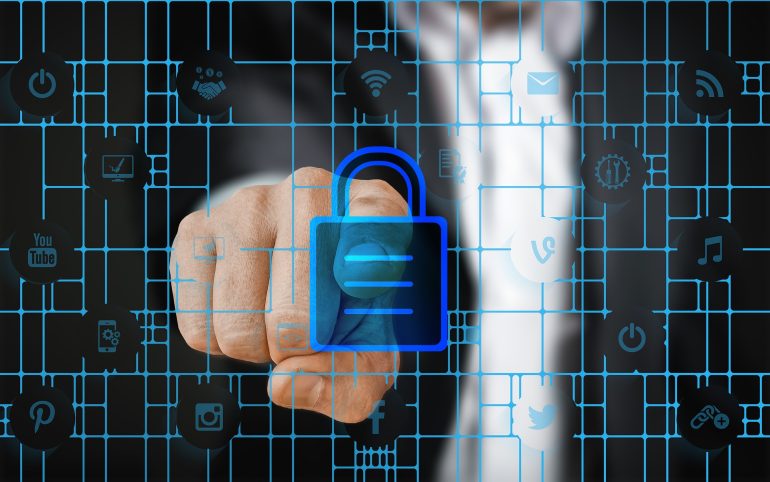What Is Software Security and Why Is It Important?
A constantly rising number of cyber threats and their increased diversity have led to a profound evolution in the understanding of software security.
Today, software security is the holistic strategy of implementation of different protection mechanisms for defending software (applications) and online services against unauthorized access, abuse, or destruction.
Software Security, not Security Software!
Table of Contents
Software security and security software are not the same things at all.

Any piece of software with the objective to identify, prevent, interrupt, and/or repair the damage caused by intruders on your computer or network can be called security software.
Software security is much more – it is a strategy of an organization that provides the integrity of information, safeguards the digital assets, and maintains the privacy of information restricted to the public.
Building Secure Apps Right from Beginning
The cornerstone of software security today is building software (application) that is secure from the very beginning of its development.
An attack-resistant, the secure app should not need extra layers of security. On the other hand, it needs well-educated users who can use it in the right manner to avoid being prone to attacks.
Why is software security important? Malicious attacks can cause extreme damage to any piece of software by compromising integrity, authentication, and availability.
Software security is therefore about maintaining the integrity and operation of your internal services and digital services that can be accessed by third parties (customers).
If developers take good care about this issue, damage can be stopped before it begins, which is the best case scenario there is. If the software product comes to market with serious security flaws, it may be costly or impossible to fix it once it has become available to the public.
5 Key Principles of Improving Software Security
1. Let the Software Be Up-to-Date and Patched
Regular patching and keeping the software up-to-date boosts software security. A good portion of attacks is caused by vulnerabilities not detected or patched in time.
2. Use the “Least Privilege” Concept
“Least privilege” is the concept of giving software users minimal access to programs in order to get their jobs done. Never give access to features, access rights, and controls to those who do not really need them.
3. Automate as Much as You Can
An intensive, pre-defined rule-based automation regarding software security can substantially minimize security threats caused by human behavior or error.
4. Fight Social Engineering by Education
Social engineering is the tactic of manipulating or deceiving a specially targeted victim by using their emotions so that the manipulator can gain access to a cyber system in order to steal sensitive information.

The attack may be performed through digital communication channels, but its essence is not hi-tech – social engineering attacks are devised to evoke basic human emotions: curiosity, greed, trust, and submissiveness to authority.
The most efficient measure against this type of threat is education on how to evaluate and identify a potential attempt to compromise an organization by making the targeted user reveal sensitive data to the attacker.
5. Document, Measure, Adjust
Security policies must be clearly defined, recorded, and shown to everyone, including new employees. Over time, some adjustments will have to be made. By defining key metrics, you can track your software security over time.
Web Application Security
As we have seen, software security starts from step one of app development.

When building secure web applications, one of the additional key things that have to be taken into account is scalability. Scalable web apps are by definition more secure and the main goal of scalable app design is to make the elements of the application reliable.
By harmonizing the data flow between the app’s client-side (frontend) with its server-side (backend), the reliability is increased, and security is improved.
if you’re running a WordPress site, using security plugins like WP Login Lockdown and WP Force SSL are highly recommended. These plugins can help protect your site from unauthorized access and ensure that all communication between your website and its visitors is encrypted and secure. Additionally, regular updates and maintenance of your website’s security features can go a long way in keeping your site safe and secure.
Do Not Leave Security “For Later”
If you are developing a web app or service (such as an e-commerce site, for example), you have to be sure that the programmers take due care to avoid creating security issues.
Leaving security “for later” is a common occurrence and that “later” sometimes never comes, even after the rollout. That is a huge mistake! – security has to be an integral part of the entire development process.
Hire a professional. A partnership with developers who know how to mitigate risks will provide the integrity and continuity of your business. Their software security testing team should be able to use a variety of techniques to probe an app for potential weaknesses, making it resistant to malicious attacks.
Security of E-Commerce and Other Online Services
E-commerce security is a branch of web app cybersecurity that aims at keeping an e-store and its customers safe from cyberattacks. This includes data breaches, hacking, phishing scams, and other threats.
Key aspects of e-commerce security are:
- Data Security. Specialized in protecting customer data: names, addresses, social security numbers, and credit card information;
- Payment Security. Makes online payments safe, secured, and protected from hacker intrusion during a financial transaction;
- Website Security Protecting the store’s website from being hacked or compromised in any way.
What Is DNSSEC and Do You Need it?
When starting an online business and building an e-commerce website, security is one of the top priorities.
There are many different ways to protect an e-commerce platform from cyber threats, but perhaps the most important one is choosing a reliable hosting provider.
Such a provider must offer protection against online threats such as DDoS, malware, and phishing attacks.

Especially sensitive and vulnerable is the Domain Name System (DNS), which was not security-oriented upon its creation. That is why the DNSSEC had to be devised.
Domain Name System Security Extensions (DNSSEC) represents a suite of extension specifications for securing data exchanged in the Domain Name System (DNS) in Internet Protocol (IP) networks.
Do you really need DNSSEC? Well, yes. If you are running a website, especially one that handles user data – like an e-shop – you will want to have DNSSEC in place in order to prevent DNS attack vectors, thus protecting both visitors and web applications from forged DNS data.







